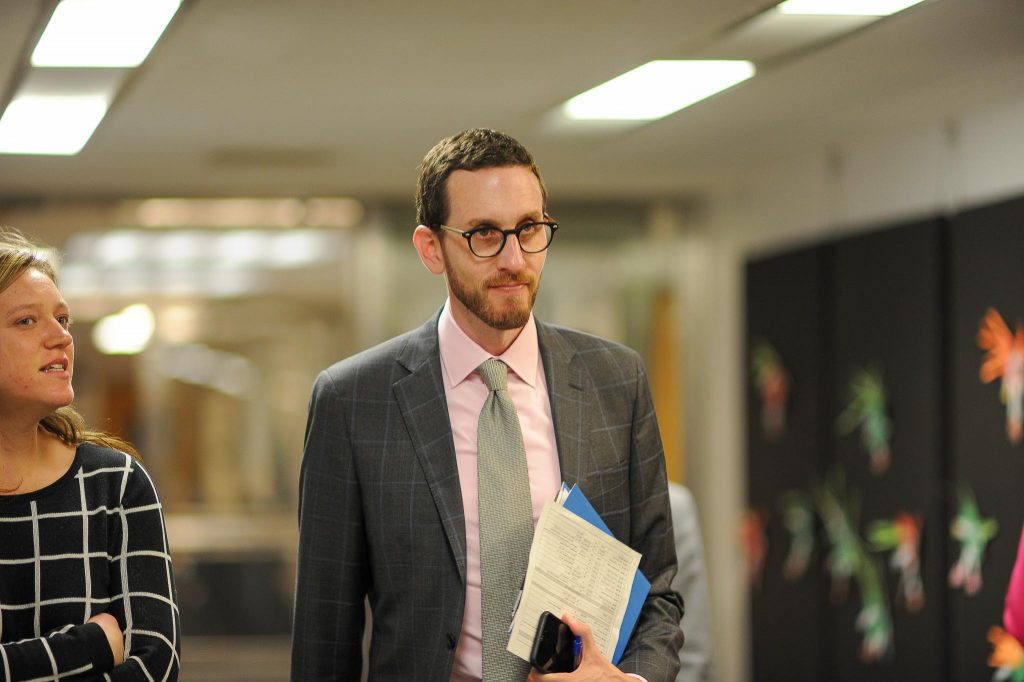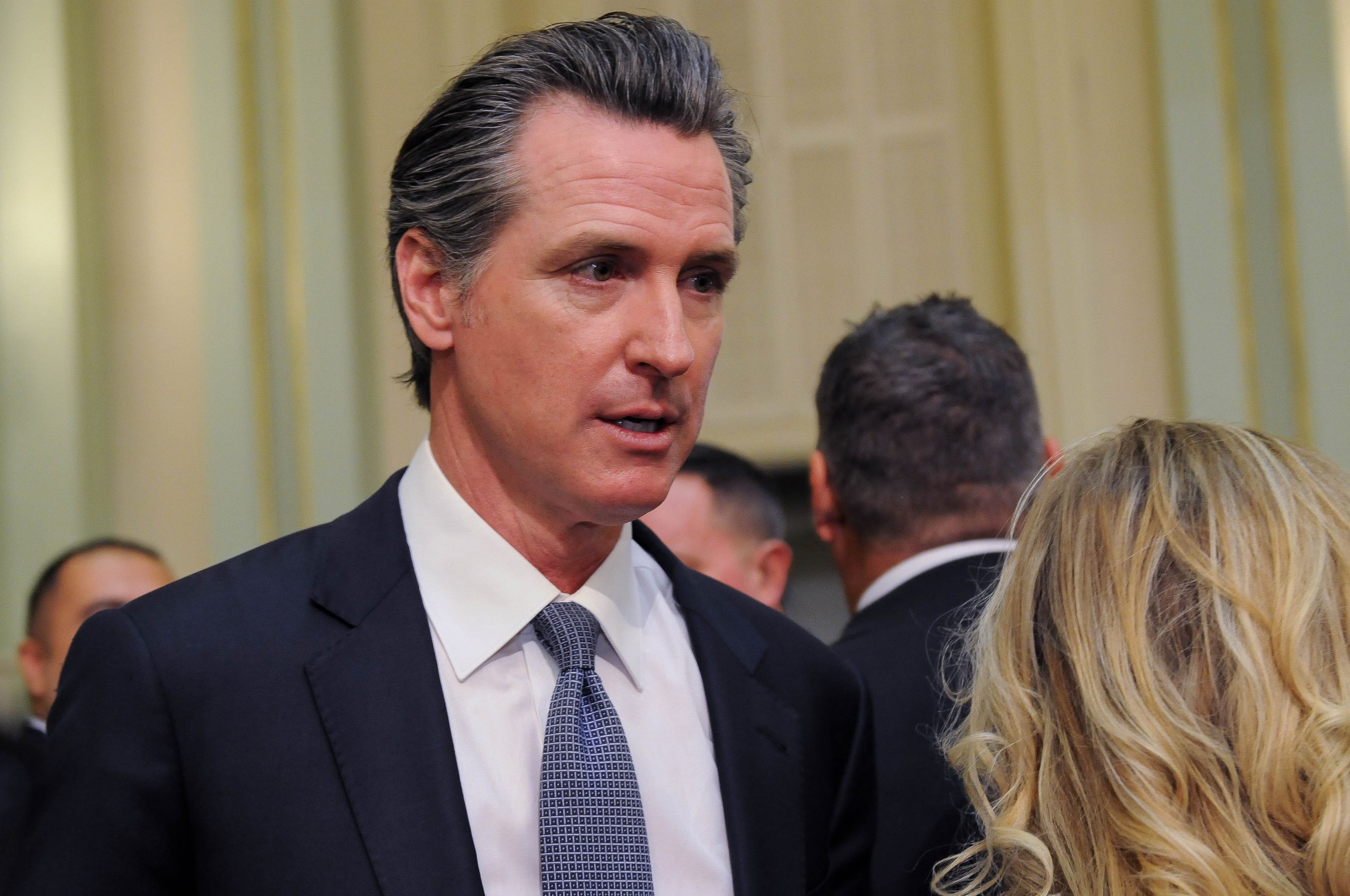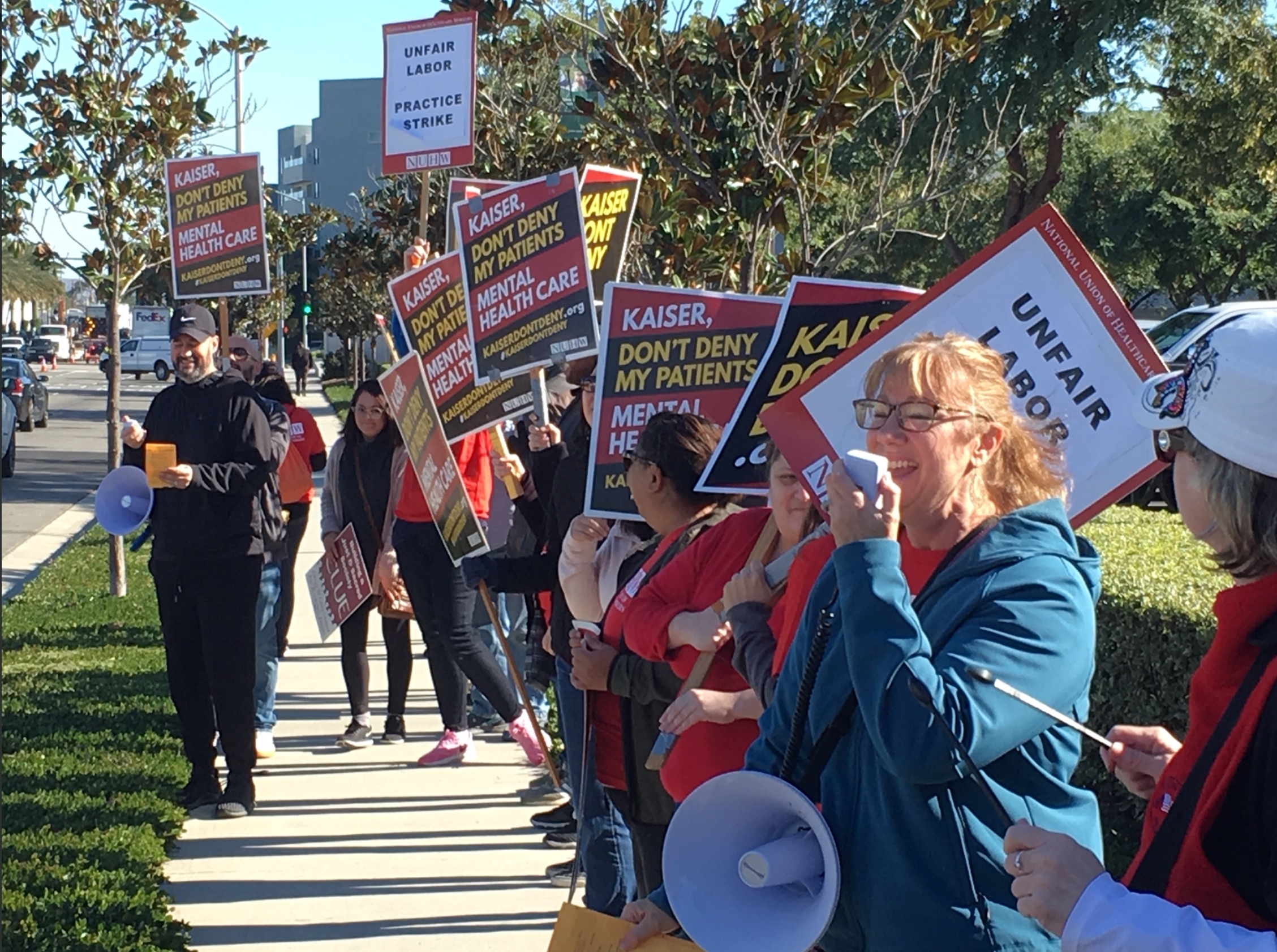
Gov. Gavin Newsom signs bills into law. (Photo: gov.ca.gov)
Several Mental Health Reforming Bills Signed By Gov. Newsom
California counties, health insurance companies to expand services, further fund mental health, addiction treatments
By Evan Symon, September 26, 2020 8:03 am
On Friday, Governor Gavin Newson signed into law several bills requiring California counties to have more mental health and substance abuse programs, and for health insurance companies to pay for more such programs under the new term “medical necessity.”
Several bills signed into law by Gov. Newsom

Assembly Bill 1976, authored by Assemblywoman Susan Eggman (D-Stockton), specifically targets a current law known as Laura’s Law. Laura’s Law, also known as the Assisted Outpatient Treatment Demonstration Project Act of 2002, currently offers limited, free community-based, assisted outpatient treatment to those with mental illnesses who would otherwise have no treatment options. AB 1976 would remove conditions for counties or groups of counties to fully implement Laura’s Law.
Assemblywoman Eggman, a social worker, wrote the bill primarily to expand services as current Laura’s Law parameters currently fall short due to current county limitations.

“The Assisted Outpatient Treatment demonstration project started by Laura’s Law has shown for many years that we have the tools to provide effective, community-based mental health treatment to those with the greatest need,” Assemblywoman Eggman said on Friday. “As a social worker I’ve long fought for the extension of these critical services, and expanding this program and finally making it permanent will ensure greater care for the people of California.”
Another bill, Senate Bill 855, authored by Scott Wiener (D-San Francisco), was also signed, requiring private health insurers to provide full mental health and substance abuse treatment coverage , putting them under new standards of “medical necessity” for full treatment. Mental health coverage will now be equal to regular health conditions in terms of providing treatment.
“Many health insurance companies refuse mental health or drug addiction treatment for people by saying “it’s not serious enough,” Senator Wiener said earlier this year when asked about his reasons for backing the bill. “It’s like telling a Stage 1 cancer patient they can’t get treated until they are at Stage 4.”
“We would never tolerate that with physical health. Yet we tolerate it with addiction.”
“Mental healthcare is essential to a person’s overall health, and today, we reaffirmed that people must have access to care for mental health and addiction challenges. California’s mental health parity law has huge loopholes — which the insurance industry has used to deny critically important care — and today that loophole was closed. SB 855 sends a powerful message to the nation that California prioritizes the mental health of its residents. I’m proud of my colleagues and the Governor for getting it and enacting this legislation into law.”
Newsom fulfills campaign promise, but health insurance experts warn of adverse effects of new laws
Other new laws signed on Friday, including SB 803 and other bills, which gives new standards for behavioral health Peer Support Specialists and expands the services to be covered under Medi-Cal allowing state medical funding to be used more on mental health and substance abuse treatments.
Upon signing, Governor Newsom noted the need for more mental health support, adding that his signing of the bills would fulfill one of his campaign promises from 2018.
“The bills I am signing today will help Californians access the behavioral health services they need to recover,” the Governor said on Friday. “Earlier this year, I pledged to put these critical services within reach of more Californians, through reforming our Mental Health Services Act and laws that allow loved ones and service providers to ask courts to compel those who need treatment into community-based outpatient care. Today, we do just that.”
While all the bills had been passed relatively easily in the Assembly and Senate, ranging from unanimous approval of AB 1976 to the more contentious approval of SB 855, many opposed the bills, including health insurance companies who noted that the increased mental health and substance abuse services could lead to higher overall costs.
“The bills passed today make it seem like all health insurance companies want to give the minimum treatment or want to wait until the last minute to give treatment,” Helena Dove, a health insurance consultant, explained to the Globe. “That isn’t the case. People have different policies and coverage and a lot of times judgements are made. You know, is it minimum coverage. How severe is it. Is it a danger.”
“Companies don’t wait until the last minute but make sure that other, less severe options have been tried first. Many times, patients wanting treatment haven’t even gone in for a checkup or an initial screening with a psychologist. Health insurance companies need to know the patient at least that much.”
“The term ‘medical necessity’ is also a very loose one to work with, as you can argue a lot of things to be covered under the language of the bill. A lot of the language should have been lass vague and more clarified.”
All mental health and addiction bills signed by the Governor on Friday are set to come into law on January 1, 2021.
- Paper V. Plastic - April 20, 2024
- Two More Insurance Companies Pull Out Of California - April 19, 2024
- San Francisco Files Lawsuit Against Oakland Over Airport Renaming - April 19, 2024





Hmmm…while I agree that mental health needs more funding and focus. Reagan was a great president, but closing mental hospitals was one of his two huge mistakes he made (other one was believing the Democrats and giving amnesty without securing the border first). But… funding addiction treatment?!?! That could be just throwing money away. The last time I have heard some stats, drug treatment had like 90% fail rate and I have heard of treatment bills into $100k, just to watch the addict go right back into using the moment they get out.
Those are called relapses and unfortunately are part of the disease. As the addict repeats drug use behavior and rehabilitation he/she establishes a learned behavior without drugs and subsequently the fail rate diminishes.
First step is to stop encouraging mental illness with a drug free for all.
Lack of mental health starts at the top with Gov. Newsom
In spite of trying several times I have been unable to have my comment, which is critical of this legislation, posted. Instead it disappears.
Love this Hallelujah Jesus. Health insurance companies should promptly give this services to the mental illness person automatically while taken by police every week as a 51/50. Thus, they are too sick to self care. This should be a land of nation which picks up one another. Enough is enough where we just walk by while our brothers and sisters are at stack. John 15:12 This is my commandment , that Ye Love one another, even as I have Loved you. ????
Good news for the mental heath services bill! You are going to need it! You gotta be nucking futs to live in California!